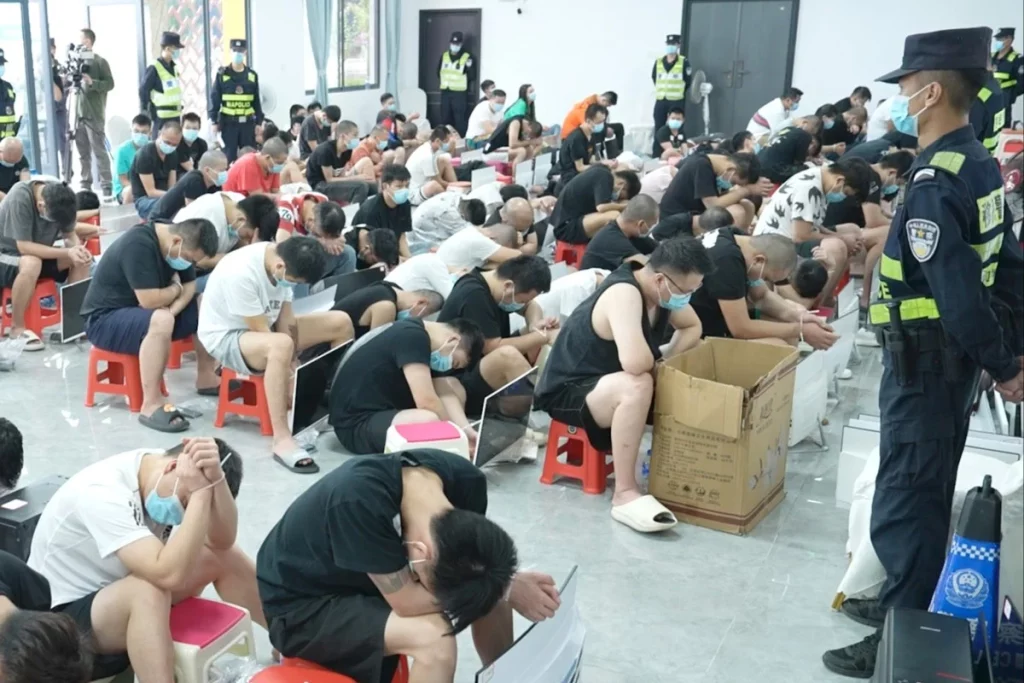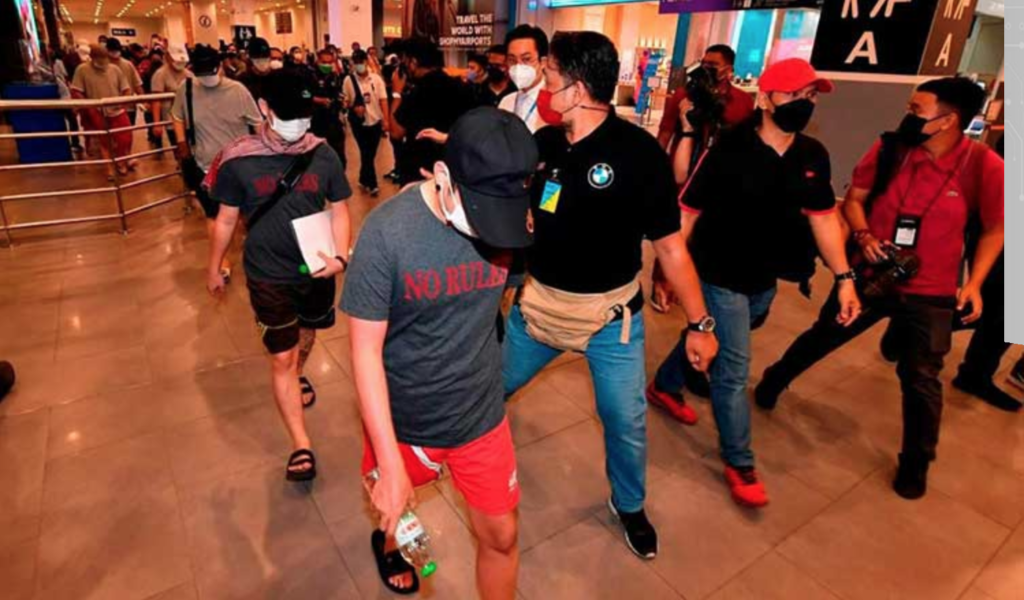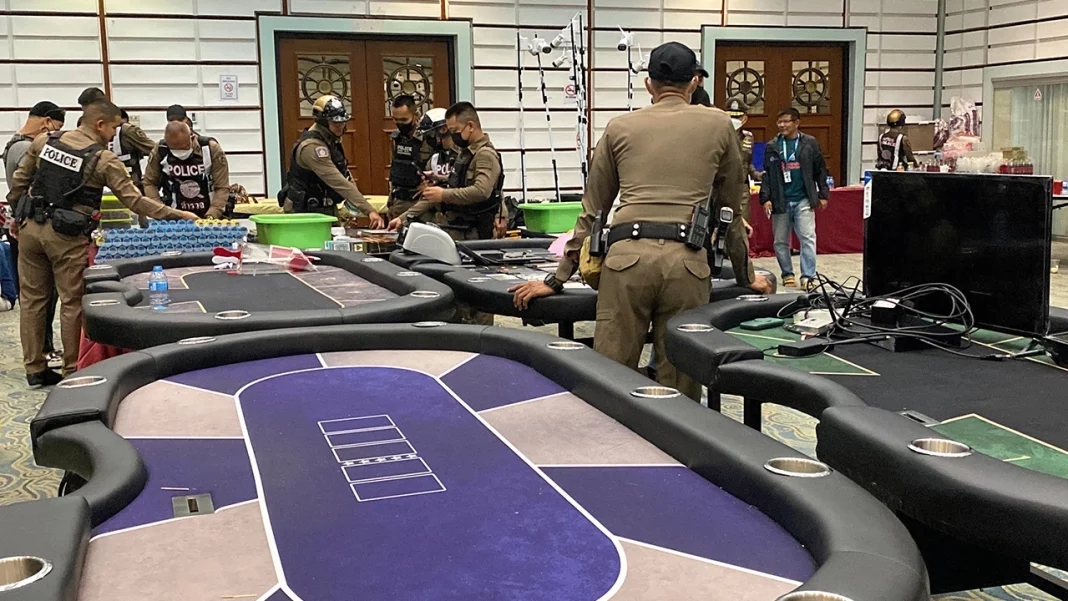Greater China likely accounted for almost half of the world’s illegal betting turnover. A report estimated that the illegal betting turnover generated by the Philippines, Cambodia, Myanmar and Laos was around $425 billion.
The report was jointly produced by the Asian Racing Federation (ARF) and The Mekong Club, a leading non-profit organization that focuses on addressing modern slavery and related crimes.
The report centers on four key regions — the Philippines, Cambodia, Myanmar and Laos – and explains how illegal betting is funding drug trafficking and other criminality, corrupting governments, and generating billions in illicit annual profits.
‘In terms of profits involved, the global illegal betting market has been estimated as high as $1.7 trillion a year in total turnover. Sources believe Greater China accounts for at least 50 percent of this volume. If the operations in jurisdictions described in this report drive half again—likely a small estimate—turnover could be in the region of $425 billion,’ the report published by the ARF Council shows.
The report estimated that just Suncity’s VIP operations were reported to have a turnover in the region of $145 billion before the collapse of the group following the detention of its top management at the end of last year.
‘Assuming a very simplified profit margin on betting turnover of 4–9 percent, this would equate to $12–$38 billion a year in illegal profits from online betting in these four jurisdictions alone,’ ARF notes.
The ARF estimates that around 80 percent of sports bets worldwide are made illegally, with the total amount bet annually possibly as much as $1.7 trillion, with Asia the world’s largest betting market.
The region represented, legal and illegal, about 65 percent of global betting volume, with the illegal market possibly as much as 10 times larger than the legal market.
‘Greater China, given its population and cultural appetite for gambling, is the biggest market for illegal betting in the world. Most entities described in this report primarily (but not only) target this market,’ the report posited.
‘Illegal betting is so large in Asia because it has 60 percent of the world’s population, many with an appetite for gambling, yet a general lack of competitive legal, well-regulated betting options in many jurisdictions to meet this demand.
At the same time, illegal operators linked to organized crime were described as having long filled this supply-demand gap, with the internet supercharging a ‘street-level activity into a globalized trillion-dollar industry’.
Modern slavery

Between 75,000 and 250,000 people are believed to work in the offshore betting and related cyber-scam industries across the four jurisdictions covered by the report.
The report argues that tens of thousands of people are being held in modern slavery conditions to work in organized illegal betting and cyber-scam operations across Southeast Asia, in operations run by individuals with long histories of involvement in illegal betting and organized crime across Asia.
‘Some individuals are recruited on false job advertisements, have their passports removed, and are kept in dormitories attached to fully contained casino compounds as forced labour to promote illegal betting websites and engage in industrial-scale cyber-fraud,’ the report adds.
The report even cites reports of “staff” being beaten with iron bars, shocked with cattle products, tied up, and subjected to other forms of torture, with female victims sometimes forced into sex work for failing to meet targets.
‘In 2023, indications are that this overlap of online betting, fraud, modern slavery, forced prostitution, drug trafficking, and other criminality is not only continuing but likely expanding across Asia and beyond,’ the report concludes.
‘In summary, while illegal betting is far from the only factor facilitating human trafficking across Southeast Asia, it remains an important and growing illicit business line for many organized criminal groups involved in such trafficking, as the next section explains’.
Long-term operations

The groups running such operations were said to have been active in organizing and promoting gambling across Asia since at least the 1990s.
‘Because many of the core activities in this business (e.g., movement of money across borders, violent debt collection, bribery of local officials, provision of related “entertainment” such as narcotics and sex), are illicit, such operations have by necessity been closely associated with, or directly run by, individuals with organized crime backgrounds,’ it notes.
In the early 2000s, this business was boosted by the development of online gambling, both casino games and sports betting,, run directly out of existing casinos or related properties, which massively increased the target market, and has grown to be a ‘trillion dollars illegal industry funding organized crime’.
The report claims that illegal betting operators first moved into the Philippines as so-called “licensed” online betting operators to give their operations an air of legitimacy, and around 2016, in response to changes to the Philippines’ regulatory environment, some expanded into Cambodia, which had legalized casino gambling in certain areas.
‘In 2018, Cambodia suddenly made such activity illegal (although it continues), and operators expanded to even less-regulated jurisdictions such as Myanmar and Laos. And in around 2021–22, some operators have expanded even further afield, such as Dubai, to try to avoid attention from China’s ongoing crackdown on illegal betting,’ it added.
According to the organization, attempts to profit from this by governments in Southeast Asia, typically by licensing operators for a fee, have led to the spread of such operations across the region and had major negative impacts, including widespread corruption.
It has also concentrated operations in self-contained compounds and so-called special economic zones which local police are often unwilling or unable to enter or investigate.
Operators were also said to often falsely claim to be associated with state-level projects such as China’s Belt and Road project to lend themselves credibility, an issue said to even have a geopolitical impact, with US lawmakers branding such operations ‘wrongly as state-sponsored’.























